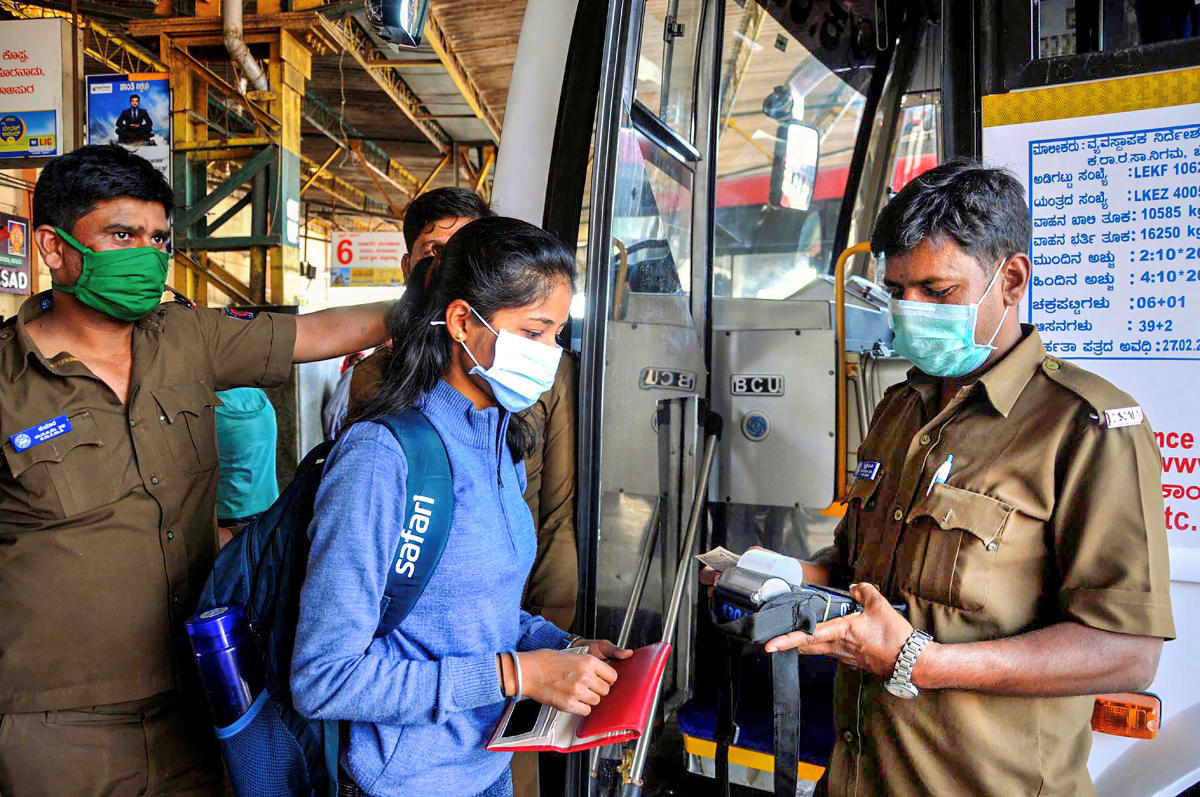
Karnataka records highest single-day spike with 9,000 COVID cases
Karnataka witnessed its biggest single-day spike of over 9,400 COVID-19 cases on Thursday (August 27).

Karnataka witnessed its biggest single-day spike of over 9,400 COVID-19 cases on Thursday (August 27).
The spike came in the backdrop of rising cases in cities like Bangalore, Mysore, and Ballari, which together accounted for half of the total number of confirmed cases in the state.
According to the COVID-19 warroom data released by the government, as of Thursday, 3,09,792 cases were confirmed, of which nearly 70 percent of the cases are recovered. The state witnessed an average 100 deaths every day over the past week with the toll mounting to 5,232 deaths since the pandemic started.
While the government attributed the increase in positive cases to a rise in testing capacity — which increased from an average 58,000 over the past week to the current 68,000-level — the rise in cases also comes amid the state easing travel restrictions for inter-state and intra-state travellers.
Fearing hoarding, the government in July regulated the distribution of the Remdesivir drug, which is given to patients with severe respiratory illness when their oxygen saturation dips below 94 percent.
However, the state government has now relaxed the norms and said even private hospitals can procure the drug, but under the government’s supervision.
For Bangalore, the positivity rate for the past seven days remained at 12 percent, which is below the state average of 13.5 percent. However, it remained over 20 percent in districts like Gadag (25 percent), Mysuru (24.2 percent), Ballari (21 percent), indicating a worrying trend. The data shows that over the past three weeks, the cases in Mysore, Ballari and Belagavi remained somewhat the same with 20-25 percent on an average.
The lack of control in these districts was also due to administrative reasons.
Following the suicide of Nanjangud (Mysore) Taluk Health Officer Dr. S.R. Nagendra last Thursday, the testing process and healthcare had come to a grinding halt in the city. Even the medical officers went on a strike seeking action agasint the Zilla Panchayat CEO for putting pressure on Nagendra and other healthcare workers. Nanjangud was one of the early virus clusters with many employees of a pharmaceutical company testing positive.
The healthcare staff withdrew their protest after the police filed a first information report (FIR) for abetment of suicide against the IAS cadre Zilla Panchayat Chief Executive Officer (CEO) Prashanth Kumar Mishra.
The Karnataka IAS officers association on Tuesday termed the action as “unjust” and said the FIR against him has “brought down the morale” of field officers.
Amid reports of oxygen cylinder shortage in Karnataka, DC S.S. Nakul denied the claims and said there was enough stock to meet their requirements.
Meanwhile, in Bangalore, nearly fourteen newborns of COVID-19 positive mothers contracted the virus at Vani Vilas Hospital and Trauma Care Centre (TCC) over the past few weeks. Around 60 hospital staffers too contracted virus since mid-June at Chinmaya Mission Hospital (CMH) in Bangalore. About 50 percent of CMH’s beds are reserved for COVID care.
However, Dr C N Manjunath, director of Jayadeva Institute of Cardiovascular Sciences and Research, is of the opinion that as the government increases testing facilities, the cases are bound to rise and that it is a good sign as more people are now willing to get tested.
“Unless you relax norms, the fear factor would still be there. Considering that the person will not be stamped and no posters will be put outside their (travellers’) houses, many who were reluctant to get tested are now coming forward,” Manjunath had said.

